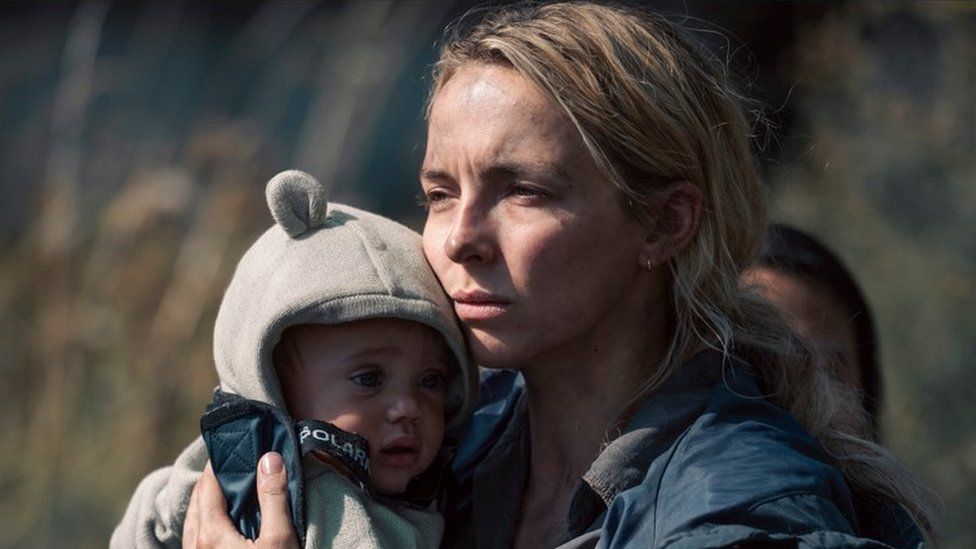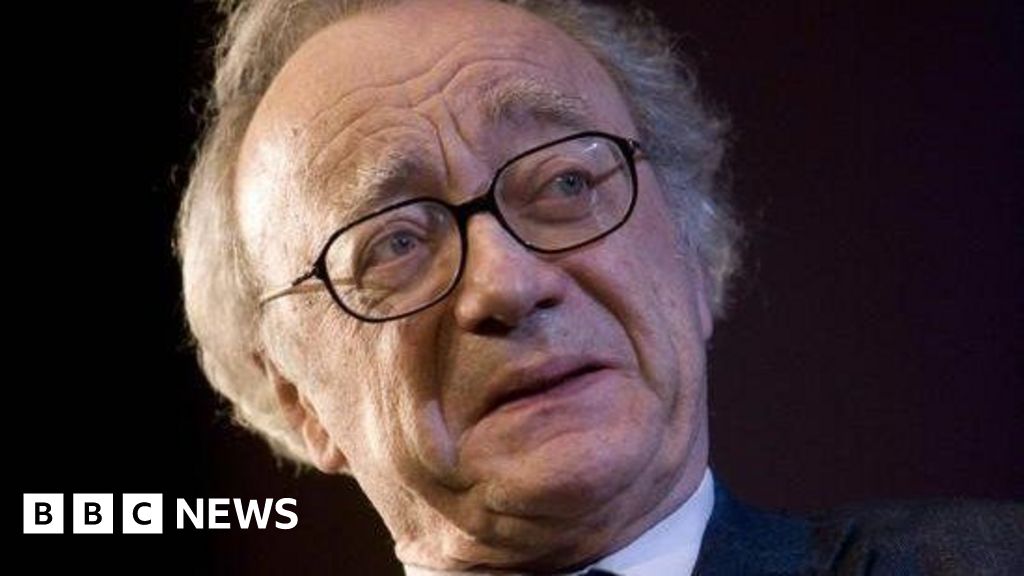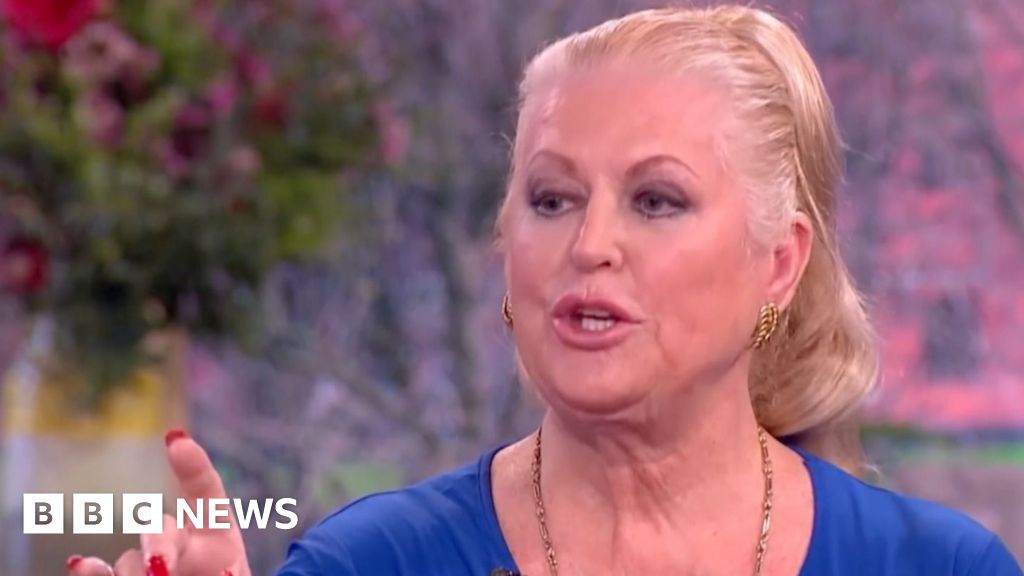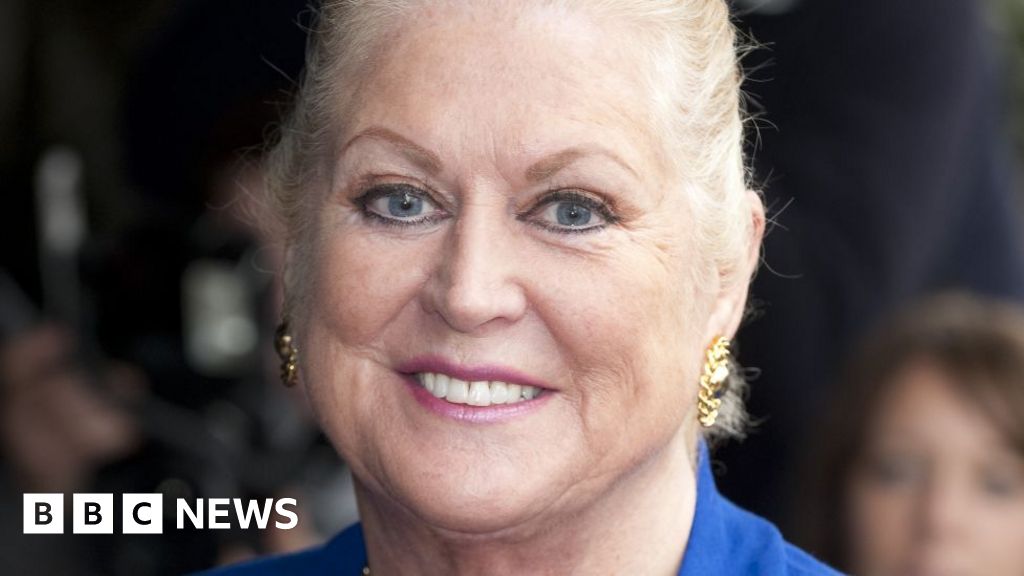ARTICLE AD BOX
 Image source, Anika Molnar/Signature Entertainment
Image source, Anika Molnar/Signature Entertainment
Jodie Comer had a steep learning curve when it came to working with babies
By Helen Bushby
Culture reporter
Killing Eve star Jodie Comer may look pretty invincible when she's acting, but she is surprisingly candid about her latest role, saying: "I started this process quite literally terrified."
In survival film The End We Start From, Comer plays a mother who navigates flooding and civil unrest - while trying to nurture her newborn baby.
It sounds like an impossible combination, but Comer evidently likes a challenge - she's already garnered a slew of awards, including two Baftas, for her vastly different acting roles.
This film starts in London, where environmental disaster means Comer's character and her partner flee their flooded home. They head for the safety of his parents' house in the countryside.
But other people's lawlessness, and the need for food and medicine, keep them on the move.
For Comer, the experience brought her into close contact with babies for the first time.
In total, she worked with 15 infants, aged from eight weeks to young toddlers. "It was very eye-opening," she says.
Strict on-set rules meant each child was only allowed to be part of a scene for 20 minutes at a time, hence why so many were needed.
Image source, Anika Molnar/Signature Entertainment
Image caption,Comer said she had a "great working relationship" with Joel Fry, who played her partner
It was a steep learning curve for the actress, who had to discover how to keep the babies happy so she could act with them.
"A lot of my younger cousins have grown up now, so I haven't spent a lot of time around young babies," she tells the BBC.
"My hands were visibly shaking when I met an eight-week-old on set. I was like, 'Oh my god, what have I done?'
"It's one thing to act and think about everything else, but then actually being conscious of this precious little being and making sure that they're safe..."
Image source, Rekha Garton/Signature Entertainment
Image caption,Comer was rarely without a baby in this film
Her character, simply called Woman, appears with baby Zeb in pretty much every scene, so Comer had to acclimatise pretty quickly to the unpredictable rhythms of babies during the six-week shoot.
"People always say nothing can prepare you for having a child, and that's very much where Woman started," she explains.
"But then you see her come into her own and find her instincts and nature. It felt like that simultaneously happened to me in real time."
She laughs as she recalls a scene that was actually easy because the baby fell asleep in her arms.
"I always remember that scene where the man and the young boy came into the house," she says. "The baby fell completely dead asleep. He was like a little sack of potatoes.
"The production staff were like, 'Do you want to take him off?', and I was like, 'Just keep him there, I'm good, because he's settled, he's quiet - we're happy'."
Director Mahalia Belo adds: "In the sound you can hear him snoring!"
Image source, Anika Molnar/Signature Entertainment
Image caption,Mahalia Belo and Jodie Comer on the film's recreation of a flooded street
Belo is full of praise for Comer, and admits juggling so many infants while trying to direct the film was quite a logistical challenge.
"I was very lucky to have Jodie because it was so difficult," she says.
"We had no time with the babies, so to have somebody who was really present, alive to the material and any shifts we had to make - we would never have got through it if it wasn't for that tenacity.
"We're all in the trenches, making an indie film with a baby," she adds with a smile, explaining that if they couldn't capture a crucial scene due to an infant crying, they would use a dummy baby if time was pressing.
Another challenge was depicting widespread flooding and carnage while filming during a drought in September and October 2022, when there was a hosepipe ban.
"We couldn't use rain machines until the hosepipe ban was over," Belo explains.
Image source, Anika Molnar/Signature Entertainment
Image caption,Woman experiences the devastation from climate change and flooding
The moment the ban was lifted, they were able to film the water scenes.
"We managed to clear out this whole street and show the effect of flooding, and were quite clever with how we did it, because we didn't have a great deal of money," Belo adds.
"We wanted it to feel as natural as possible, so that when we did use effects, it was mostly on the periphery."
For Comer, working on an independent film with a limited budget and timescale was a new experience.
"Before I'd done an indie film, I'd watch the British Independent Film Awards every year and hear people go, 'The passion, the love, the sheer drive to get indie films made - it's incomparable!'
"And then you create a film like that and you're like, 'Oh, it's no joke, people are making this for the love of it'."
She did have a caravan to dry off in, but says "to be fair I was hardly in it", due to the sheer volume of scenes she was in.
Image source, Anika Molnar/Signature Entertainment
Image caption,Comer said Katherine Waterson 's character taught Woman to "just be herself"
Motherhood was a central theme, and the feelings of being overwhelmed that new mothers can have are mirrored in the film's chaos, with the rising waters driving people out into the unknown.
Based on the lyrical novella of the same name by Megan Hunter, it was adapted for the screen by Alice Birch.
Birch also co-wrote the hugely popular TV adaptation of Sally Rooney's Normal People and the screenplay for the award-winning film Lady Macbeth, which starred Florence Pugh.
Comer's portrayal of Woman has been widely praised, with The Guardian's Benjamin Lee describing her "magnificent lead performance", saying: "As a big screen star, she's just beginning."
Variety's Guy Lodge said Belo "directs with assured restraint, consistently stressing the human factor".
Image source, Anika Molnar/Signature Entertainment
Image caption,Benedict Cumberbatch's character connects briefly with Woman in the film
The film features Benedict Cumberbatch, who is also a producer, plus Katherine Waterston and Gina McKee.
Comer calls McKee "a goddess", while her day shooting with Cumberbatch gave her the chance to have a bit of a break.
"With Benedict, I just got to sit and watch - a lot of it was me observing him, and him telling his character's story. So it was kind of amazing to sit and witness him do his thing."
Waterston's character O is a fellow displaced mum. The women's friendship develops as they start to rely on each other for support, with Comer saying O teaches Woman to "just be herself".
For Comer, having got the hang of working with babies, her goal as an actress is to keep challenging herself.
Image source, Rekha Garton/Signature Entertainment
Image caption,Jodie Comer: "I have a very gut reaction to things and if it's not a 'Hell yes!' it's usually a 'No'"
She is eloquently precise about what she looks for in a script.
"I want to be moved, I want to feel invigorated, I want to feel energised by the thought of telling the story, and I want to feel emotionally connected.
"I want to care. I have a very gut reaction to things and if it's not a 'Hell yes!' it's usually a 'No'.
"I don't really want to stay in a pattern of repetition and revisit the same things.
"I'm always looking for something - a new self-discovery, in a way."
The End We Start From is in UK cinemas from Friday, 19 January.

 1 year ago
37
1 year ago
37








 English (US) ·
English (US) ·